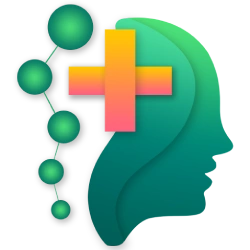Anxiety Treatment in Borivali – Dr. Nishtha Dalwani
Anxiety Disorder
Anxiety disorder is a psychiatric condition characterized by persistent and excessive worry or fear about everyday situations. According to recent data from the World Health Organization, women are more susceptible to experiencing anxiety in their daily lives compared to men. Anxiety stands as the most prevalent mental health condition in India, impacting around 38 million adults aged 18 and above annually. It encompasses a range of disorders, including generalized anxiety disorder (GAD), panic disorder, social anxiety disorder (SAD), specific phobias, and separation anxiety disorder. Anxiety disorders are treatable with therapy, medication, and lifestyle changes.
What is an anxiety attack?
An anxiety attack, commonly known as a panic attack, is a sudden and intense episode of overwhelming fear or distress. It can occur unexpectedly or in response to a specific trigger, and its symptoms can vary from person to person. During an anxiety attack, individuals may experience physical sensations such as a rapid heartbeat, sweating, trembling, shortness of breath, chest pain, or dizziness. Additionally, they may have psychological symptoms like feelings of unreality, impending doom, or losing control.
What are the signs and symptoms of anxiety disorder?
Signs:
- Increased heart rate
- Rapid breathing
- Muscle tension
- Sweating excessively
- Gastrointestinal discomfort
Symptoms:
- Persistent worry
- Restlessness or irritability
- Difficulty concentrating
- Anticipating the worst outcome
- Fear of losing control
What are the types of anxiety disorder?
- Generalized Anxiety Disorder (GAD): Characterized by persistent and excessive worry about various aspects of life, including health, work, and relationships.
- Panic Disorder: Involves recurrent panic attacks accompanied by intense physical symptoms such as heart palpitations, sweating, and trembling.
- Social Anxiety Disorder: Marked by a fear of social situations and scrutiny by others, leading to avoidance of social interactions and activities.
- Specific Phobias: Irrational and intense fears of specific objects or situations, such as heights, animals, or flying, causing significant distress and avoidance behavior.
- Obsessive-Compulsive Disorder (OCD): Features recurring intrusive thoughts (obsessions) and repetitive behaviors or mental acts (compulsions) performed to alleviate anxiety.
- Post-Traumatic Stress Disorder (PTSD): Develops after exposure to a traumatic event and involves symptoms like flashbacks, nightmares, hypervigilance, and avoidance of triggers associated with the trauma.
How to diagnose anxiety disorder?
Conduct a psychological assessment: During this evaluation, the psychiatrist engages in discussions with the patient to understand their thoughts, emotions, and behaviors, aiming to diagnose the issue and identify any associated complications. Anxiety can often coexist with other mental health conditions like depression or substance misuse, which can complicate diagnosis.
Assess symptoms according to DSM-5 criteria: Mental health professionals rely on the criteria outlined in the Diagnostic and Statistical Manual of Mental Disorders (DSM-5) to diagnose anxiety disorders.
What are the treatment options for anxiety disorder?
Psychotherapy: Various forms of therapy, such as cognitive-behavioral therapy (CBT), exposure therapy, or mindfulness-based therapies, are effective in helping individuals understand and manage their anxiety triggers, thoughts, and behaviors.
Medication: Psychiatrists may prescribe medications such as selective serotonin reuptake inhibitors (SSRIs), serotonin-norepinephrine reuptake inhibitors (SNRIs), benzodiazepines, or beta-blockers to alleviate symptoms and stabilize mood.
Cognitive Behavioral Therapy (CBT): CBT helps individuals identify and challenge negative thought patterns and beliefs that contribute to anxiety. It focuses on changing behavior through practical coping strategies and relaxation techniques.
Exposure Therapy: This form of therapy gradually exposes individuals to feared objects, situations, or thoughts in a controlled and safe environment. Over time, repeated exposure reduces anxiety and helps individuals learn to manage their fears.
Acceptance and Commitment Therapy (ACT): ACT encourages individuals to accept their thoughts and feelings rather than trying to suppress or control them. It emphasizes mindfulness, acceptance, and values-based actions to promote psychological flexibility.
Dialectical Behavior Therapy (DBT): DBT combines cognitive-behavioral techniques with mindfulness and acceptance strategies. It helps individuals regulate emotions, improve interpersonal relationships, and develop coping skills to manage anxiety and distress.
Interpersonal Therapy (IPT): IPT focuses on improving communication and interpersonal relationships to alleviate anxiety symptoms. It helps individuals identify and address interpersonal issues that may contribute to their anxiety.
Mindfulness-Based Stress Reduction (MBSR): MBSR teaches individuals mindfulness meditation and awareness techniques to reduce stress and enhance self-awareness. It promotes relaxation and helps individuals develop a nonjudgmental attitude toward their thoughts and feelings.
Eye Movement Desensitization and Reprocessing (EMDR): EMDR is a specialized therapy used to treat trauma-related anxiety disorders. It involves recalling distressing memories while simultaneously engaging in bilateral stimulation (such as eye movements), which helps process and desensitize traumatic experiences.
Regular follow-up: Ongoing monitoring and follow-up appointments with the psychiatrist allow for adjustments to treatment plans, addressing any emerging issues or concerns, and providing continued support and guidance throughout the recovery process.
Book an appointment with Dr. Nishtha Dalwani, a distinguished Psychiatrist and Psychotherapist, known for her compassionate care and expertise in treating anxiety disorders. With her personalized approach and comprehensive treatment plans, Dr. Dalwani offers support and guidance to individuals seeking mental well-being. Schedule your consultation today for effective solutions tailored to your needs.

